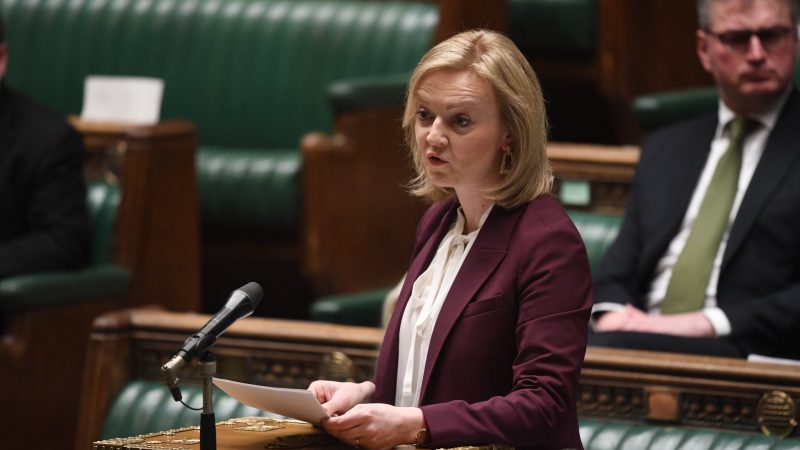
I’m reeling from that Budget. Tax cuts for the richest whilst sanctioning those who already won’t be able to make ends meet this winter is not only reckless but malevolent. Others have said that better than I ever will, but I do want to say something on the political strategy that this government is trying to pursue.
The cost-of-living crisis has dominated politics in 2022. It has consistently topped polls of the issues people are most worried about, and every group we’ve run for months has featured people telling us how worried they are about putting meals on the table and keeping their families warm this winter. The cost-of-living crisis has supplanted the pandemic as the only issue on which the politicians may get a hearing. Liz Truss hopes that her mini-Budget will move the conversation on to growth. I think she’s wrong on two counts.
Her price freeze plan costs a lot, but it won’t be enough to assuage public concern about making ends meet. It is a statement of the obvious but stopping energy prices getting worse does not address the significant and growing pressures arising from inflation on families month to month, pressures that could grow as a consequence of the government’s decision to fund their plans with such significant borrowing. Today’s statement will not stop the queues for food banks or the shuttered shops facing us this winter – especially with the punitive changes to Universal Credit that will hit those who will already struggle the most.
I also expect growth as a political top line will fail to capture the public imagination. It’s an amorphous concept that simply just does not resonate with peoples’ lives. You can’t win an argument on the doorstep about why scrapping bankers’ bonuses and tax cuts for the richest will make the weekly shop less expensive, even if you truly believe it will help the economy grow.
I know growth is important. Returning growth to the level enjoyed under the last Labour government is crucial. Of course it is. But elections aren’t won by talking about the means to an end. It’s the end that matters; jobs and decent public services.
It’s also not what people are talking about. Look underneath the bonnet of concerns about the cost of living, and you hear concerns about crime, the pressures on our NHS and crumbling high streets. Tax policy is not the conversation people are having round their kitchen table or in the pub, and nor should it be.
Liz Truss has reportedly spurned the creation of policy by focus group in favour of making unpopular arguments and gunning for them. This isn’t always a bad way to do things – having an argument is a necessary precursor for electoral success, a fact often forgotten by politicians. But you need to listen to the public to know how to win the argument, something team Truss seems determined to avoid doing.
The Labour Party has cause to celebrate at the moment. Not only is the new Prime Minister tin-eared to public opinion, she has adopted Labour arguments about stagnant economic growth wholesale. Labour will also take great comfort in having a clear philosophical argument with the government about tax and fiscal policy. But, while these battles help define Labour against the Tories, arguments about growth won’t win it for Labour either.
Labour conference starts this weekend and I think we will see the party start to move from the how to the what. We know that Labour wants to grow the economy, but what will it do with the proceeds of that growth? How will working people benefit?
This week fires the starting gun on Labour’s general election campaign, and I think we’ll start to hear how Labour will sort out the failing criminal justice system, support young families and improve care in our brilliant NHS. Labour has moved the dial with the windfall tax and the energy bill price freeze, it now needs to move the dial on public services too.
It is not yet clear if the cost-of-living crisis will become less prominent in our political debate as we approach the next election. But it won’t be arguments about growth that replace it. It will be crime, the loss of community assets and crumbling public services. The next election will be won by the party who grasps that, and chooses to ground its arguments in the day to day lives of people – not political philosophy.




More from LabourList
Nudification apps facilitate digital sexual assault – and they should be banned
Diane Abbott suspended from Labour after defending racism comments
Labour campaign groups join forces to call for reinstatement of MPs